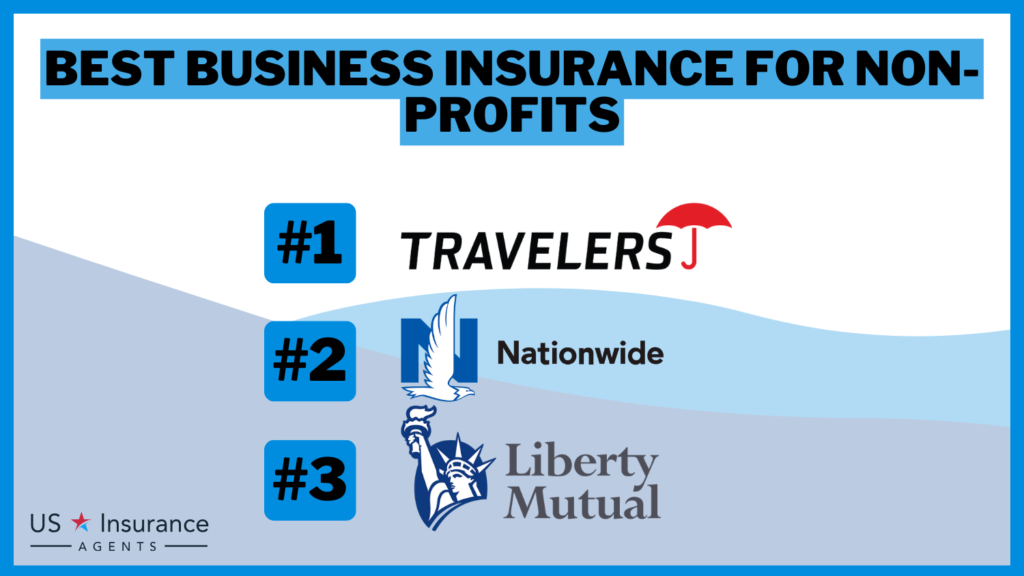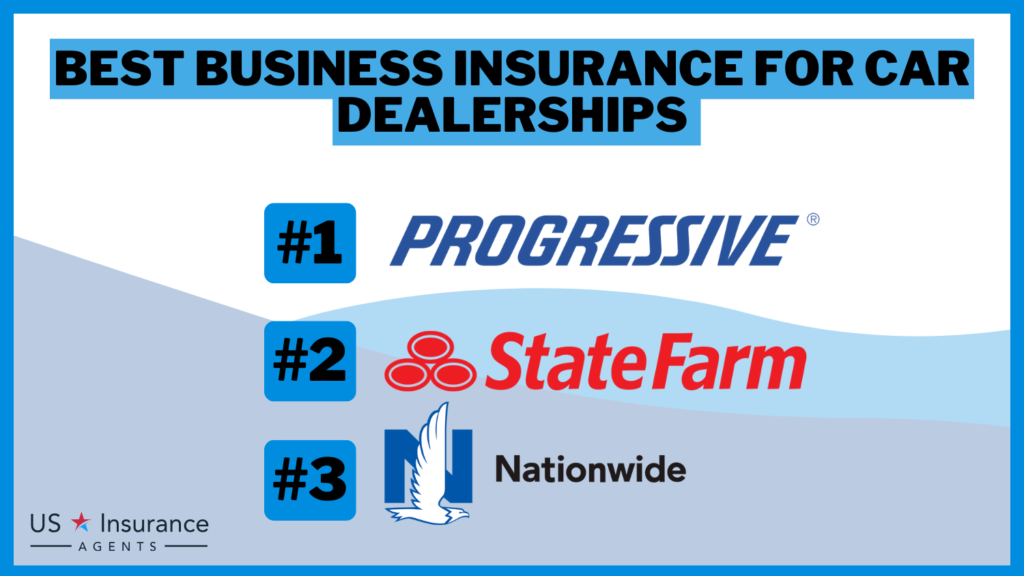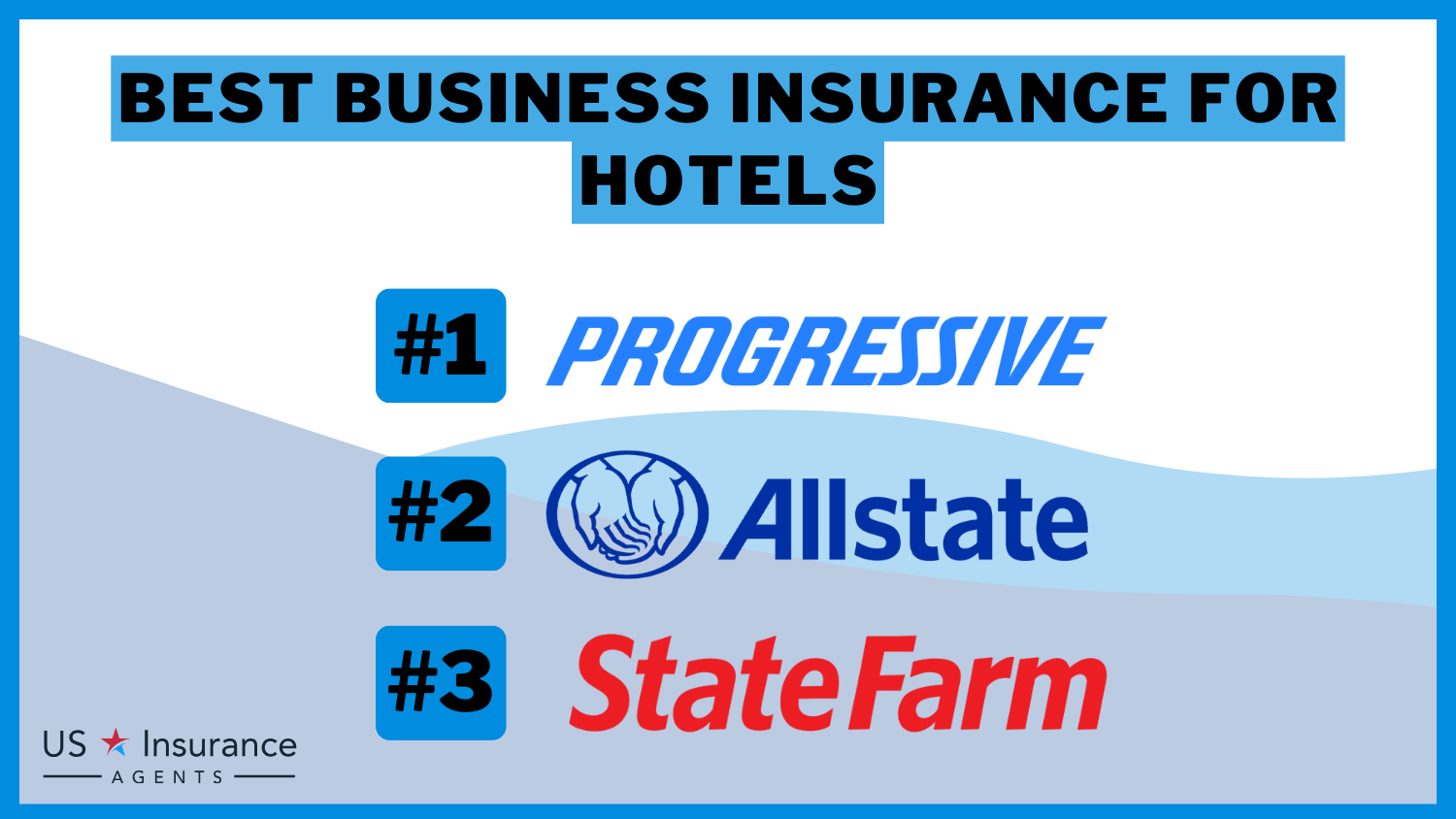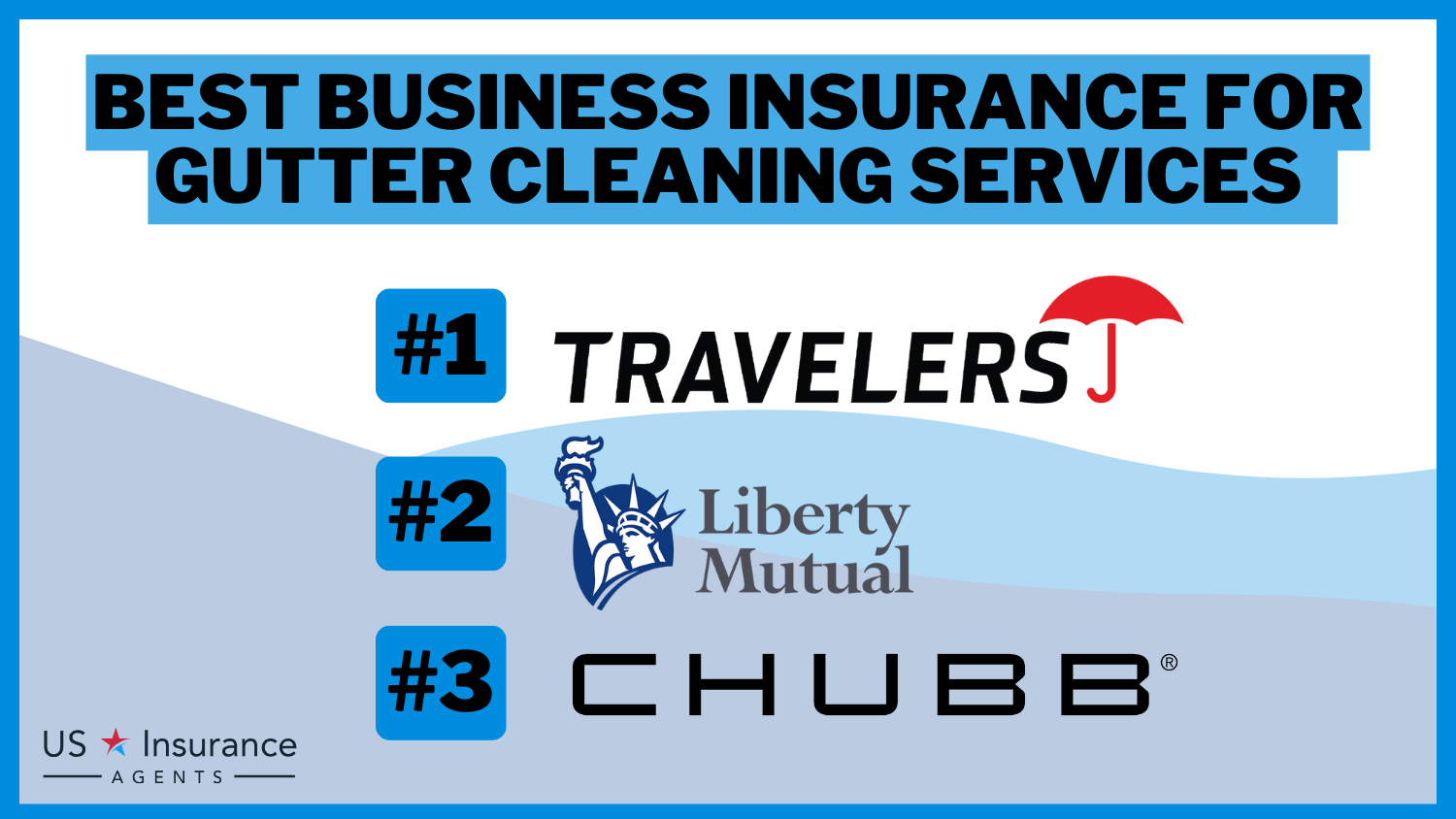Best Business Insurance for Restaurants (2026)
Discover the importance of insurance for restaurants. From kitchen fires to customer injuries and data breaches, learn how proper coverage safeguards your business, protects finances, and ensures continuity. Explore key insurance types, factors affecting costs, and real-life case studies. Get answers to FAQs about restaurant insurance.
Read more Secured with SHA-256 Encryption






Table of Contents
Table of Contents


Licensed Insurance Agent
Jeffrey Manola is an experienced life insurance agent who founded TopQuoteLifeInsurance.com and NoMedicalExamQuotes.com. His mission when creating these sites was to provide online consumers searching for life insurance with the most affordable term life insurance, permanent life insurance, no medical exam life insurance, and burial insurance. Not only does he strive to provide consumers with t...
Jeffrey Manola


Licensed Insurance Producer
Dani Best has been a licensed insurance producer for nearly 10 years. Dani began her insurance career in a sales role with State Farm in 2014. During her time in sales, she graduated with her Bachelors in Psychology from Capella University and is currently earning her Masters in Marriage and Family Therapy. Since 2014, Dani has held and maintains licenses in Life, Disability, Property, and Casualt...
Dani Best
Updated January 2025
- Restaurant insurance offers financial protection from various risks, including food spoilage, kitchen fires, and other common issues.
- Having insurance coverage is essential for managing risks and minimizing the potential fallout from incidents that can disrupt your business.
- Different types of insurance are available to address the specific needs of the restaurant industry, such as business owner’s policy, workers’ compensation insurance, general liability insurance, commercial auto insurance, liquor liability insurance, and cyber liability insurance.
- The cost of restaurant insurance varies based on factors like the type of establishment, its size, location, and specific coverage needs.
Running a restaurant comes with its fair share of risks, regardless of whether it’s a fast-food joint or an upscale dining establishment. To safeguard your business from potential hazards and their financial implications, having the right insurance coverage is crucial.
Restaurant insurance provides protection against common issues like food spoilage, kitchen fires, and other unforeseen incidents that could have a significant impact on your operations. In this article, we’ll explore the key types of insurance coverage that restaurants need and how to obtain the necessary coverage.
The Importance of Restaurant Insurance: Essentially Safeguarding Your Business
Running a restaurant involves inherent risks that can have significant financial implications. Here are several reasons why obtaining insurance coverage is crucial for restaurant owners:
- Financial Protection: Restaurant insurance provides financial protection against a wide range of risks. It helps cover the costs associated with property damage, injuries to customers or employees, lawsuits, and other unexpected incidents. Without insurance, these expenses can be overwhelming and potentially lead to financial ruin.
- Risk Management: Insurance is an essential component of a comprehensive risk management plan for restaurants. By identifying potential risks and obtaining the appropriate coverage, you can mitigate the impact of unforeseen events on your business operations. Insurance helps you prepare for and recover from incidents that could otherwise disrupt your ability to serve customers and generate revenue.
- Compliance with Legal Requirements: Many states require restaurants to have certain types of insurance coverage, such as workers’ compensation insurance or liquor liability insurance. Failing to meet these legal obligations can result in penalties, fines, and even the suspension of your business operations. Having the necessary insurance ensures compliance with these requirements and protects your restaurant from legal consequences.
- Customer and Employee Safety: Restaurant insurance not only safeguards your business but also prioritizes the safety and well-being of your customers and employees. General liability insurance, for example, covers customer injuries, property damage, and lawsuits related to your business operations. By having this coverage, you demonstrate your commitment to maintaining a safe environment for everyone who enters your establishment.
- Business Continuity: In the event of an unexpected incident or disaster, such as a fire, natural disaster, or food contamination, insurance can help your restaurant recover and continue operating. Insurance coverage can assist with rebuilding or repairing your property, replacing damaged equipment, and compensating for lost income during the recovery period. This ensures the continuity of your business and helps you get back on your feet more quickly.
By understanding the importance of insurance coverage and obtaining the right policies, restaurant owners can mitigate potential risks, protect their assets, and focus on providing excellent dining experiences to their customers.
Free Business Insurance Comparison
Compare Quotes From Top Companies and Save
Secured with SHA-256 Encryption
Coverage Options Available for A Restaurant Insurance
Restaurant owners have unique insurance needs due to the specific risks associated with the industry. Here are the key types of insurance coverage that are essential for restaurants:
- Business Owner’s Policy (BOP): A Business Owner’s Policy (BOP) is a comprehensive insurance package that combines multiple coverages in one convenient plan. It typically includes commercial property insurance and general liability insurance. Commercial property insurance protects your restaurant’s physical assets, such as the building, equipment, and inventory, from risks like fire, theft, or vandalism. General liability insurance provides coverage for third-party claims, including bodily injury, property damage, and advertising liability. A BOP is a popular and cost-effective option for restaurant owners.
- Workers’ Compensation Insurance: Most states require restaurants with employees to have workers’ compensation insurance. This coverage protects both employees and business owners in the event of work-related injuries or illnesses. Workers’ compensation insurance covers medical expenses, rehabilitation costs, and lost wages for injured employees. It also helps protect business owners from potential lawsuits related to workplace injuries.
- General Liability Insurance: General liability insurance is a fundamental coverage for any business, including restaurants. It protects against third-party claims for bodily injury, property damage, and personal injury. In a restaurant setting, this coverage can be crucial in situations where customers or suppliers are injured on the premises or if your business operations cause damage to someone else’s property. General liability insurance covers legal expenses, medical costs, and potential settlements or judgments.
- Commercial Auto Insurance: If your restaurant owns or uses vehicles for business purposes, such as delivery trucks or catering vans, you need commercial auto insurance. This coverage protects against accidents, property damage, and bodily injury caused by these vehicles. Commercial auto insurance provides coverage for repairs, medical expenses, and liability claims arising from accidents involving your restaurant’s vehicles.
- Liquor Liability Insurance: Restaurants that serve or sell alcohol should consider liquor liability insurance. This coverage protects against liabilities arising from the actions of intoxicated patrons. If a visibly intoxicated customer causes harm to others after consuming alcohol at your establishment, liquor liability insurance can cover legal fees, property damage, medical costs, and potential settlements or judgments related to the incident.
Read more: Best Business Insurance for Liquor Stores
- Cyber Liability Insurance: In today’s digital age, restaurants handle sensitive customer data and face the risk of cyberattacks and data breaches. Cyber liability insurance helps protect against financial losses resulting from cyber incidents. It covers expenses such as forensic investigations, customer notifications, credit monitoring services, legal fees, and potential liabilities arising from data breaches or other cyber incidents.
These are some of the key types of insurance coverage that restaurants should consider. Working with an insurance agent or broker specializing in restaurant insurance can help you assess your specific risks and obtain the appropriate coverage to protect your business.
Factors Affecting the Cost of Restaurant Insurance
The cost of insurance coverage for a restaurant can vary depending on several factors. Here are some key considerations that can influence the cost:
- Type of Establishment: The nature of your restaurant plays a role in determining the insurance cost. Factors such as whether it’s a fast-food joint, a fine dining establishment, or a bar and grill can affect the premium. Different types of restaurants have varying risks and coverage needs, which can impact the cost of insurance.
- Size of the Restaurant: The size of your restaurant, including the square footage and seating capacity, can affect the insurance cost. Larger restaurants may have higher premiums due to the increased exposure to risks and the need for more extensive coverage.
- Location: The location of your restaurant can influence the insurance cost. Factors such as the crime rate in the area, the proximity to natural disaster-prone areas, and local regulations can impact the premium. Restaurants located in high-crime areas or regions prone to hurricanes or earthquakes may face higher insurance costs.
- Coverage Needs: The types and amounts of coverage you choose for your restaurant will affect the overall cost. Comprehensive coverage that includes multiple types of insurance, such as a BOP, workers’ compensation, general liability, and liquor liability, will have a higher premium compared to a basic policy with limited coverage.
- Risk Factors: Insurance providers assess the specific risks associated with your restaurant, such as the presence of commercial kitchens, the use of specialized equipment, or the inclusion of alcohol service. Higher-risk factors may result in higher premiums.
- Claims History: Your restaurant’s claims history can impact the cost of insurance. If you have a record of previous claims or incidents, insurance providers may consider you a higher risk and adjust the premium accordingly.
It’s important to note that insurance costs can vary significantly depending on these factors and the specific details of your restaurant. To obtain an accurate cost estimate, it’s recommended to reach out to multiple insurance providers and request quotes tailored to your restaurant’s needs. Comparing these quotes will help you find the best coverage options at competitive prices.
Easy Step-by-Step Guide in Obtaining Your Coverage: Business Insurance for Restaurants
Obtaining insurance coverage for your restaurant is a relatively straightforward process. Here are the steps to follow:
- Assess Your Insurance Needs: Determine the types of coverage your restaurant requires based on its size, operations, and specific risks. Consider factors such as property protection, general liability, workers’ compensation, liquor liability (if applicable), and cyber liability insurance.
- Research Insurance Providers: Look for reputable insurance providers that specialize in restaurant insurance. Research their offerings, reputation, and customer reviews to ensure they are reliable and can meet your specific needs.
- Gather Information: Before contacting insurance providers, gather the necessary information about your restaurant. This may include details such as the restaurant’s location, size, annual revenue, number of employees, and any previous claims history.
- Request Insurance Quotes: Contact multiple insurance providers and request quotes based on your restaurant’s information and insurance needs. Be prepared to provide the necessary details to receive accurate quotes.
- Compare Coverage and Costs: Review the quotes received from different insurance providers. Compare the coverage options, policy limits, deductibles, and premiums offered by each provider. Consider both the cost and the level of coverage to make an informed decision.
- Consult with an Insurance Agent: If needed, consult with an insurance agent or broker specializing in restaurant insurance. They can provide expert advice, help you understand policy terms and conditions, and assist in selecting the most appropriate coverage for your restaurant.
- Purchase the Insurance Policy: Once you have selected an insurance provider and policy that meets your needs, complete the necessary paperwork and make the payment to purchase the insurance policy.
- Review and Update Regularly: Insurance needs can change as your restaurant grows or faces new risks. Regularly review your coverage to ensure it aligns with your current operations. Update your policy as necessary to maintain adequate protection.
Remember that obtaining insurance for your restaurant is an important investment in protecting your business. It’s advisable to work with experienced professionals who can guide you through the process and help you make informed decisions about the coverage you need.
Free Business Insurance Comparison
Compare Quotes From Top Companies and Save
Secured with SHA-256 Encryption
Real-Life Examples Highlighting the Importance of Insurance for Restaurants
- Case Study: Kitchen Fire Disaster
Situation: ABC Bistro, a popular local restaurant, experienced a devastating kitchen fire that resulted in extensive property damage, equipment loss, and business interruption. The fire originated from a faulty electrical connection, causing significant damage to the kitchen area and rendering it unusable.
Importance of Insurance: Fortunately, ABC Bistro had comprehensive restaurant insurance coverage, including commercial property insurance and business interruption insurance. The property insurance covered the cost of repairing and restoring the damaged kitchen, while business interruption insurance compensated for the lost income during the closure. Without insurance, ABC Bistro would have struggled to bear the financial burden of the fire and may have faced permanent closure.
Lesson Learned: This case highlights the importance of having property insurance to protect against unforeseen events such as fires. Business interruption insurance is equally crucial as it provides a safety net to cover lost income and ongoing expenses during a temporary closure.
- Case Study: Slip and Fall Accident
Situation: A customer visiting XYZ Grill slipped and fell on a wet floor near the entrance, resulting in a severe injury. The customer filed a lawsuit against the restaurant, claiming negligence in maintaining a safe environment. The legal battle and potential settlement posed a significant financial risk to XYZ Grill.
Importance of Insurance: XYZ Grill had general liability insurance in place, which provided coverage for customer injuries and liability claims. The insurance company covered the legal fees associated with the lawsuit, including attorney costs and potential settlement or judgment amounts. Without liability insurance, XYZ Grill would have been responsible for the legal expenses and potential financial damages, jeopardizing its financial stability.
Lesson Learned: This case emphasizes the importance of having general liability insurance to protect against customer injuries and potential lawsuits. Such coverage safeguards the restaurant’s financial well-being by mitigating the financial impact of legal claims and related expenses.
- Case Study: Data Breach Incident
Situation: PQR Cafe, a small café with an online ordering system, suffered a data breach. Hackers gained unauthorized access to the café’s customer database, compromising sensitive customer information, including names, addresses, and credit card details. The incident led to a loss of customer trust and potential legal liabilities.
Importance of Insurance: PQR Cafe had cyber liability insurance, which covered the costs associated with the data breach. The insurance company provided resources for notifying affected customers, offering credit monitoring services, and managing public relations. It also covered legal expenses in case of lawsuits arising from the breach. Having cyber liability insurance helped PQR Cafe recover from the incident, rebuild customer trust, and minimize the financial impact.
Lesson Learned: This case highlights the increasing importance of cyber liability insurance in the digital age. Restaurants that handle customer data must protect themselves against potential cyber threats and data breaches. Cyber liability insurance provides financial support and resources to navigate the complexities of data breaches, ensuring the café can recover and protect its reputation.
These case studies demonstrate the significance of insurance for restaurants, showcasing how appropriate coverage can help mitigate financial risks and protect the long-term viability of the business in the face of unexpected events, accidents, and cybersecurity incidents.
In Review: Significance of Getting Coverage for Your Business
Insurance is a critical component of risk management for restaurants. The unique risks and challenges faced by the restaurant industry necessitate comprehensive coverage to protect against potential financial losses. Through various types of insurance, such as commercial property, general liability, workers’ compensation, liquor liability, and cyber liability insurance, restaurants can safeguard their assets, employees, and customers.
Restaurant owners must recognize the potential risks they face, including kitchen fires, customer injuries, data breaches, and natural disasters. Having the appropriate insurance coverage can provide financial protection and peace of mind in the event of unforeseen incidents. Insurance helps restaurants recover from damages, cover legal expenses, compensate for lost income during closures, and maintain their reputation and customer trust.
In summary, insurance is not just an additional expense for restaurants; it is a vital investment that safeguards against the unexpected, protects assets, and preserves the financial stability and continuity of the business. With the right insurance coverage, restaurants can focus on what they do best: providing excellent dining experiences to their customers while minimizing the potential impact of unforeseen events.
Frequently Asked Questions
What types of insurance coverage do restaurants typically need?
Restaurants often require coverage such as general liability insurance, workers’ compensation insurance, commercial property insurance, liquor liability insurance (if serving alcohol), and cyber liability insurance for data protection.
Is workers’ compensation insurance necessary for restaurants?
In most states, workers’ compensation insurance is mandatory for restaurants with employees. It provides coverage for work-related injuries and protects both employees and employers from potential financial burdens.
How much does restaurant insurance cost?
The cost of restaurant insurance varies depending on factors such as the size of the establishment, location, coverage needs, and the type of restaurant. To obtain an accurate cost estimate, it’s best to request quotes from insurance providers based on your specific restaurant details.
Can a restaurant owner be held liable for customer injuries?
Yes, restaurant owners can be held liable for customer injuries that occur on their premises. General liability insurance helps protect against claims of customer injuries and provides financial coverage for legal expenses and potential settlements.
Are data breaches a significant concern for restaurants?
Yes, data breaches are a growing concern for restaurants that store customer information. Cyber liability insurance is recommended to help businesses recover from cyberattacks, protect customer data, and cover the associated costs of breach response, notification, and potential legal actions.
Get a FREE Quote in Minutes
Insurance rates change constantly — we help you stay ahead by making it easy to compare top options and save.





